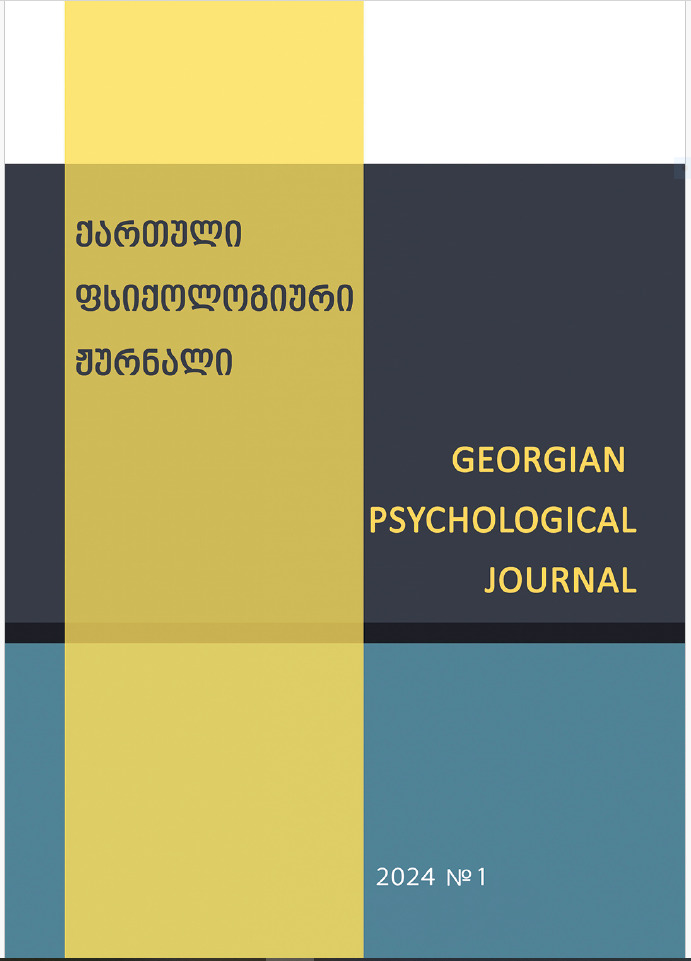STIGMA – GASLIGHTING SEMANTICS: LANGUAGE, MANIPULATION AND CULTURAL STEREOTYPES IN GEORGIA
Main Article Content
Abstract
The present article concerns the issues of linguistic semantics in the context of gaslighting mobilized through the cultural stereotypes widely accepted in Georgia. Empirical material was obtained from the students of Javakhishvili Tbilisi State University (Faculty of Humanities, Faculty of Psychology and Educational Sciences, Faculty of Social and Political Sciences). The theoretical framework of the study is linguistic semantics, in particular, Leech’s theory of meaning. The value of the study is in its focus on the unconscious form of gaslighting which is widespread in different social contexts. Despite the growing interest in mental health and psychological manipulation, the fact that unconscious gaslighting, which often remains unnoticed, is no less harmful than conscious, preplanned manipulation, is often neglected.
The study shows that most respondents had personally experienced a negative influence of gaslighting especially when they were criticized and shamed by older generation in Georgia. Specific cases of gaslighting are mostly related to gender and cultural issues (politics, religion) and contribute to stigmatization. The analysis of empirical material demonstrates that certain semantic changes are observed in such discourse. In particular, the social meaning of the lexical units used by the speaker (manipulator) acquires affective connotation, which has a negative influence on the listener’s (victim’s) self-confidence and makes them question correctness of their perceptions.
The study also demonstrates that the Georgian youth is aware of the above manipulations, can identify them and is less susceptible to the negative influence of gaslighting.
